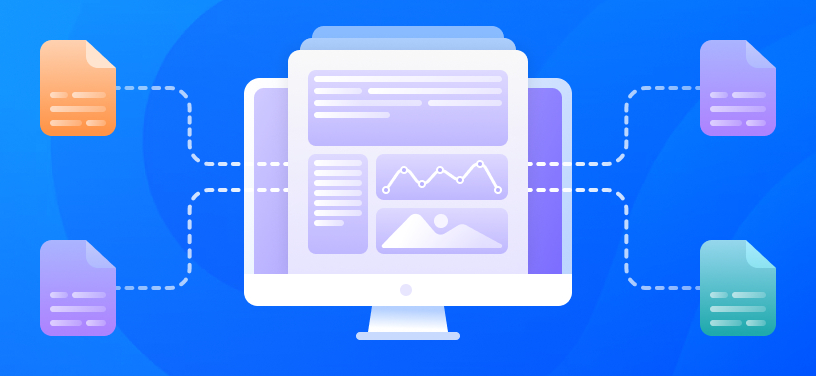Top Financial Data Providers for Market Intelligence in 2025
According to McKinsey’s research, the financial data and markets infrastructure (FDMI) industry is growing strongly, with a 17% annual growth rate in shareholder returns from 2019 to 2023, surpassing the broader financial sector. The industry includes five key areas: exchanges, post-trade services, securities services, data and analytics, and financial technology. It’s being shaped by trends like Big Tech collaborations, generative AI (e.g., virtual research assistants), and the rise of nonbank market makers and private markets.
In the age of high-frequency trades, data-driven forecasting, and algorithmic decision-making, one truth holds firm: good data isn’t just important — it’s indispensable. Whether you're an asset manager, hedge fund researcher, fintech founder, or academic analyst, the quality and speed of your market intelligence are defined by your data providers.
Yet, with hundreds of vendors offering overlapping services, navigating the world of financial data can feel overwhelming. In this article, we break down the top financial data providers in 2025 — not just by reputation, but by what they actually offer: depth, accuracy, latency, and integration power.
Bloomberg – Still the Gold Standard
Bloomberg remains the heavyweight champion for institutional investors. Known for its flagship Bloomberg Terminal, it delivers real-time financial data, news, analytics, and trading capabilities in a single platform. What keeps Bloomberg at the top isn’t just quantity, but context — its curated data streams are deeply structured and thoroughly vetted.
For hedge funds and investment banks, Bloomberg’s depth in fixed income, FX, and commodities markets is unmatched. The Terminal’s proprietary analytics, like Excel-linked Bloomberg functions (BDP, BDH, BDS), allow portfolio managers to model strategies dynamically. While the platform’s cost is notoriously high, its breadth and speed make it a foundational tool for global finance.
Refinitiv – A Powerhouse Backed by LSEG
Refinitiv (part of the London Stock Exchange Group) delivers a vast and modular data offering, including equities, commodities, derivatives, and ESG metrics. Its flagship platform, Eikon, competes directly with Bloomberg Terminal and is widely used by traders and analysts.
Refinitiv is also a major player in tick-level data, historical pricing, and machine-readable news — crucial ingredients for algorithmic trading and backtesting. Its data feeds and APIs are compatible with Python, R, and most quant infrastructure tools, making it a natural choice for firms building custom analytics stacks.
Where it particularly shines in 2025 is ESG coverage. Refinitiv’s ESG scoring and company-level environmental data offer a clear edge as sustainable investing moves from trend to requirement.
FactSet – Clean APIs and Deep Integrations
FactSet is often praised for its clean, well-documented API and seamless integration across internal tools. Investment firms appreciate its model-ready datasets — including fundamentals, consensus estimates, and ownership — delivered with minimal noise.
In 2025, FactSet's strength lies in its ability to unify structured and unstructured data. Its acquisitions in the alternative data space have turned it into a hybrid vendor: not just financials, but also sentiment, foot traffic, credit card transactions, and web-sourced insights.
For mid-sized hedge funds and fintechs that want flexibility without compromising data integrity, FactSet offers a smart balance.
S&P Global Market Intelligence – Reliable and Research-Driven
S&P Global brings together fundamentals, credit ratings, macroeconomic forecasts, and industry-specific KPIs into a tightly connected research suite.
What differentiates S&P is its authoritative stance in credit and fixed income. Banks and debt investors trust its risk metrics and debt modeling tools. S&P also offers proprietary indices and private market insights, serving private equity and venture capital firms with increasing precision.
Its web-based interface is user-friendly, but what really matters is its integration with Excel models and internal research tools — allowing analysts to connect insight to action quickly.
Morningstar – Transparency for the Long-Term Investor
Morningstar has long been a trusted name in fund research, but its data capabilities have grown significantly. In 2025, Morningstar provides detailed mutual fund, ETF, and stock coverage, along with sustainability ratings and portfolio analytics.
Asset managers value Morningstar’s transparency and documentation. For those focused on long-term strategies, its factor-based analytics, manager scoring, and retirement planning datasets offer clear, structured insight. Though not as broad as Bloomberg or Refinitiv, Morningstar excels in clarity, particularly for wealth managers and RIAs.
PitchBook – Private Market Intelligence
PitchBook specializes in venture capital, private equity, and M&A data. As private markets become an essential component of institutional portfolios, access to accurate and timely deal data is critical.
In 2025, PitchBook’s strength lies in its breadth of company profiles, funding rounds, valuation history, and investor relationships. For LPs, GPs, and corp dev teams, it’s a vital tool for sourcing opportunities and understanding market dynamics beyond the public markets.
Its intuitive dashboards and research tools help users find signals in a noisy space where private data is notoriously fragmented.
Which Provider is Right for You?
Choosing a financial data provider depends on your domain, budget, and internal infrastructure.
If you need real-time pricing, news, and trading execution, Bloomberg and Refinitiv remain top-tier. FactSet’s clean APIs are hard to beat for integration-heavy environments and quant teams. If you're navigating credit markets or macro risk, S&P brings institutional-grade clarity.
For private market intelligence, PitchBook is indispensable. And for transparent, long-horizon fund data, Morningstar continues to deliver.
In a world where data is strategy, the difference between signal and noise often lies in the provider. Whether you're building quant models, informing asset allocation, or pitching investment theses, the quality of your inputs determines the power of your outputs.
The best financial data providers in 2025 don’t just sell information — they sell insight. Choose wisely, and your data will become your edge.
NB: Please note that the product is intended for automating tests on your own websites and sites you have legal access to.


